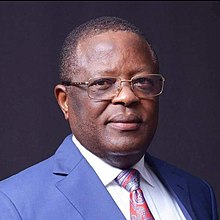By Abdallah el-Kurebe, Editor
Civil Society Organisation (CSO), YIAGA AFRICA has said that the decision of the Independent National Electoral Commission’s (INEC) to bar the Zamfara state chapter of the All Progressives Congress (APC) from fielding candidates in the 2019 elections, is legal.
Its Executive Director, Mr. Samson Itodo made this known in a document entitled, “The Legality of INEC’s Decision to Ban the APC from Fielding Candidates in the 2019 General Election in Zamfara,” on Monday in Abuja.
INEC had on October 9, issued a statement that APC was ineligible to field candidates for all elective positions in Zamfara in the 2019 general elections due to its failure to meet the October 7th deadline for conducting primaries to elect candidates for the election as stipulated in the timetable and schedule of activities by INEC.
According to him, INEC was established by Section 153 of the Constitution as a permanent institutional body with the task to oversee the Nigerian electoral system, to organise, undertake and supervise all elections into offices.
“In addition to the foregoing, INEC is empowered by Sections 85 and 86 of the Electoral Act 2010 (as amended) to monitor and supervise all primaries held by political parties to determine their compliance with the Electoral Act. To this end, political parties are mandated to give INEC at least 21 days’ notice before the conduct of any convention for the purpose of nominating candidates (Section 85),” Itodo stated.
He observed that where the convention did not hold or descended into chaos and fighting, as in the Zamfara situation, INEC could declare that no valid primaries were held.
“Going by the above analysis, it is indisputable that the timetable for the 2019 general elections published by INEC has binding force on all political parties. To this end, INEC is entitled to enforce its provisions pursuant to the powers conferred on it by the Constitution and the Electoral Act 2010 (as amended).
“Having established the foregoing, it remains to be discussed if barring the APC from fielding candidates in Zamfara is the appropriate and only legal option open to INEC in the circumstance,’’ Itodo said.
He stressed that a look at Section 31 of the Electoral Act and the timetable for the 2019 general elections released by INEC revealed the inescapable conclusion, adding that such action by INEC was not only legally appropriate, but indeed the only logical step to be taken by the electoral commission.
Further stating that Section 31 of the Electoral Act mandated political parties to submit their list of candidates at least 60 days before the election, Itodo opined that to submit such list, section 87 mandated the political party to conduct primaries after giving INEC at least 21 days’ notice before the convention for the primary.
He said due to what went down with the APC in Zamfara, it was impracticable for them to hold a primary and nominate candidates without violating the deadlines set in the timetable.
Itodo added that attempting to accommodate the APC within the current timetable would generally distort the entire schedule of activities as dictated in the timetable.
This, he said was because the publication of the particulars of all candidates in the 2019 general elections was scheduled to be done on Nov. 9 for states.
He said that it would be grave injustice and a distortion of the electoral landscape for other parties that had complied with the timetable for the scheduled activities on the timetable.
Itodo said that it would also not be good for the timetable to be distorted in order to give additional accommodation to one party out of the 89 parties partaking in the elections.
The executive director said there had been opposing views arguing against the legality of INEC’s decision to bar APC from fielding candidates relying on section 31 of the Electoral Act.
He said that this view argued that APC had until at least 60 days before the election to nominate its candidates and submit to INEC.
He added that the view also believed that INEC lacked the power to ban APC from nominating candidates before this deadline seeing that there were still over 100 days before the general elections.
Itodo said that a cursory study of the constitution, the timetable and schedule of activities for the 2019 elections, revealed that INEC was empowered by the constitution to strictly enforce its contents.
He said that Section 31 of the Electoral Act did not preclude INEC from setting an earlier timeline for submission and also did not confer on political parties the right to disregard INEC’s timeline.
Itodo said that INEC’s timeline was, therefore, valid and enforceable and failure to comply with it disqualified a political party from participating in the election.
He said that the APC in Zamfara failed to comply with the timetable in its preparation for the 2019 general elections regarding the deadline for conducting primary elections to nominate its candidates.
He said that this failure was fundamentally fatal as it would leave the party without any opportunity to nominate candidates seeing that no nomination could be held without primaries under the Electoral Act.
He said that no additional accommodation could be made by INEC for the APC within the current timetable without unduly distorting the whole timetable for the conduct of the 2019 general elections.
Itodo added that any attempt at this would be unjustifiable to the other parties and would undermine the credibility of the entire electoral process.
He said that as a result, INEC was legally entitled to disqualify the APC from fielding any candidate for the various elective positions in the 2019 general elections in Zamfara.
Itodo said that this decision was legally unimpeachable having regards to the powers of INEC under the 1999 Constitution.
He said that it was also a step in the right direction of sanitising and instituting certainty and credibility in the electoral process. With reports by NAN



